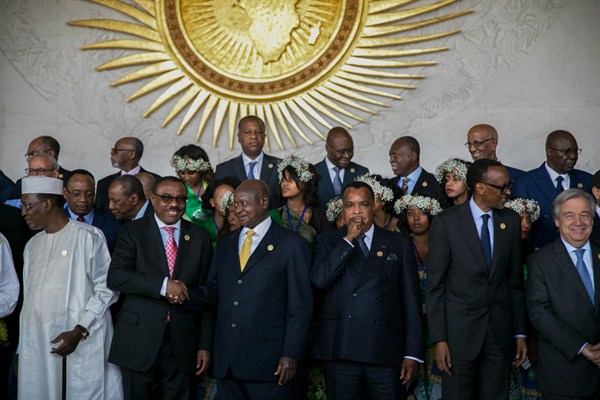The African Union has a new face, following its summit last month in Addis Ababa, Ethiopia. Chad’s former prime minister, Moussa Faki Mahamat, is taking the reins as the new chair of the AU Commission. And for the first time, the AU’s membership now includes every nation on the African continent, following Morocco’s decision to return to the organization after withdrawing 33 years ago in protest over the status of Western Sahara.
But a new look won’t change the fact that in many regards, the AU is still a broken institution. Ninety-seven percent of the organization’s programs are funded by external sources. As of December, fewer than half of member nations had paid their dues; 15 hadn’t paid a single cent. In 2017, AU expenses are expected to run $439 million, of which African nations are scheduled to pay just 26 percent. The rest will come from abroad.
Moreover, the fragmented internal bureaucracy leaves the commission chair unable to pick his or her own commissioners or delineate their portfolios. The AU’s Assembly—one of its many decision-making bodies—has adopted more than 1,500 resolutions over the years, but there’s no simple way of tracking how many of them have actually been implemented. The AU also works in uncomfortable parallel with regional groups, such as the Economic Community of West African States (ECOWAS), that at times prove more powerful than the continent-wide body, as evidenced in the recent political crisis in Gambia.

